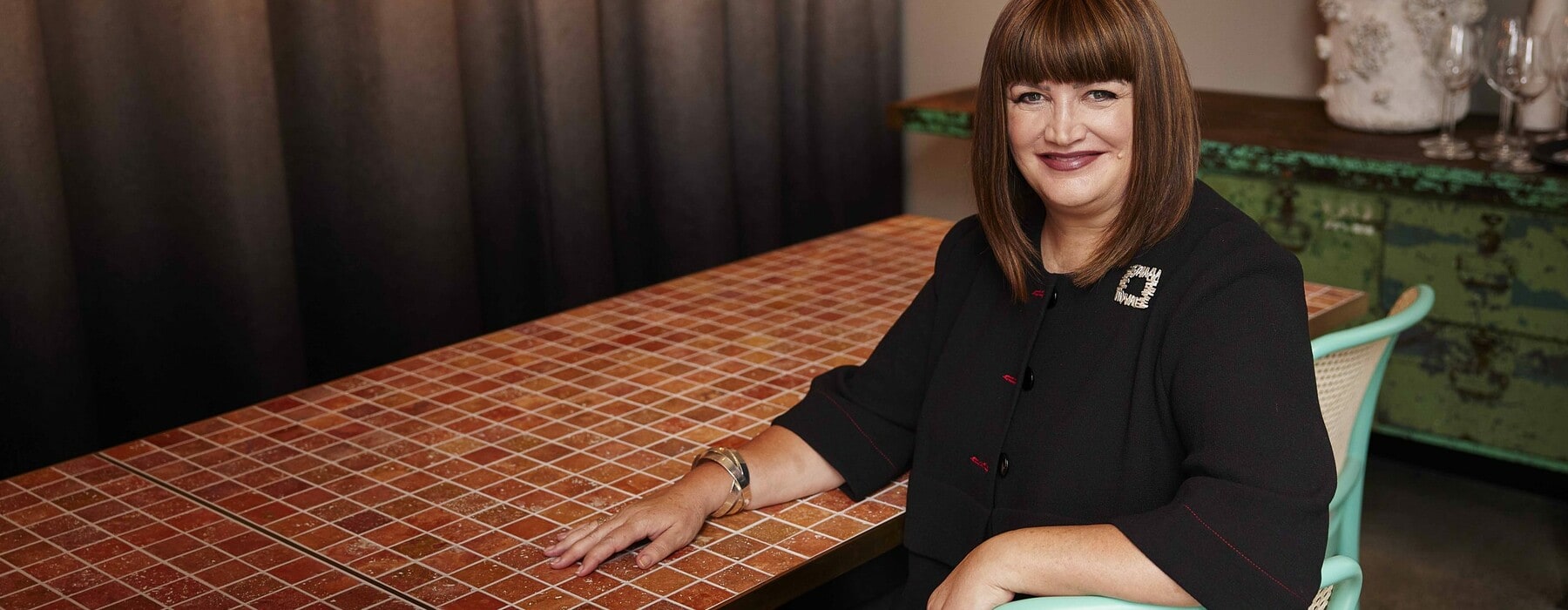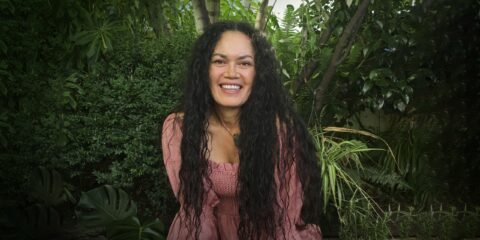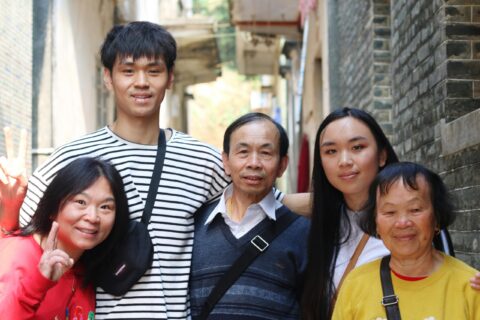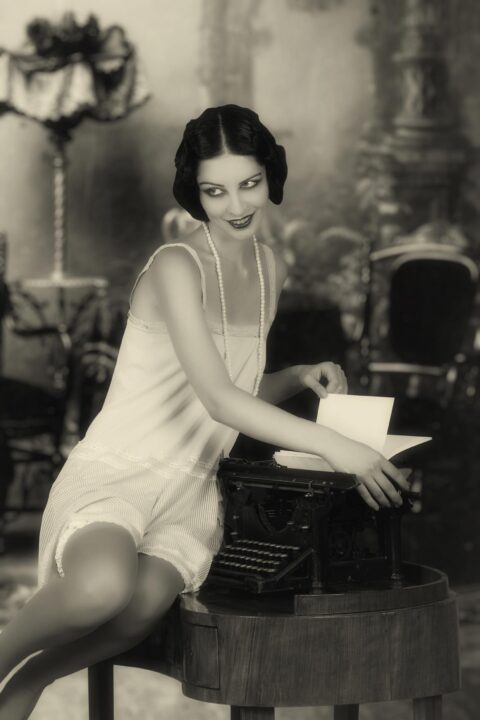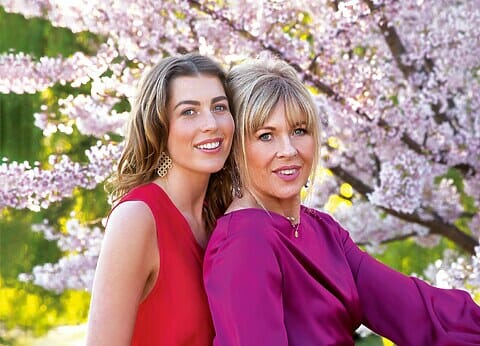She dodged her share of mudslinging in the male-dominated world of Aussie rugby, now the sports-obsessed CEO is back on New Zealand soil and motivated to get Kiwis moving. Raelene Castle talks to Sophie Neville about ambition, resilience and when business gets personal.
Raelene Castle is a woman who, whether she likes it or not, tends to stand out in a crowd. Perhaps it’s the bold lippy, the trademark hairstyle (a wig, but more on that later), the statement jewellery or her purposeful walk. There’s something about her that makes people look up from their meals as she marches through the restaurant of the QT Auckland hotel where we’ve arranged to meet for our interview.
For anyone who follows sports news here or across the ditch, the 50-year-old is instantly recognisable. But for those who don’t know her, she’s Raelene Castle ONZM: New Zealand’s most powerful woman in sport and longtime poster girl for smashing gender barriers.
She’s also the new CEO of Sport New Zealand, a job she gladly steps into after seven, often bruising, years in Aussie. It’s the third consecutive groundbreaking role for Raelene, for whom the novelty of being “the first-ever woman” in a job is becoming decidedly old hat. But there’s no denying the importance of her appointments – after leading Netball New Zealand for six years, Raelene moved to Australia in 2013 to become the Canterbury Bankstown Bulldogs’ first-ever female CEO. Four years later, she made headlines again, sensationally becoming the first woman to lead Rugby Australia. Despite the undeniable part she’s played in tackling systemic sexism in sport, Raelene says she never set out to smash the patriarchy.
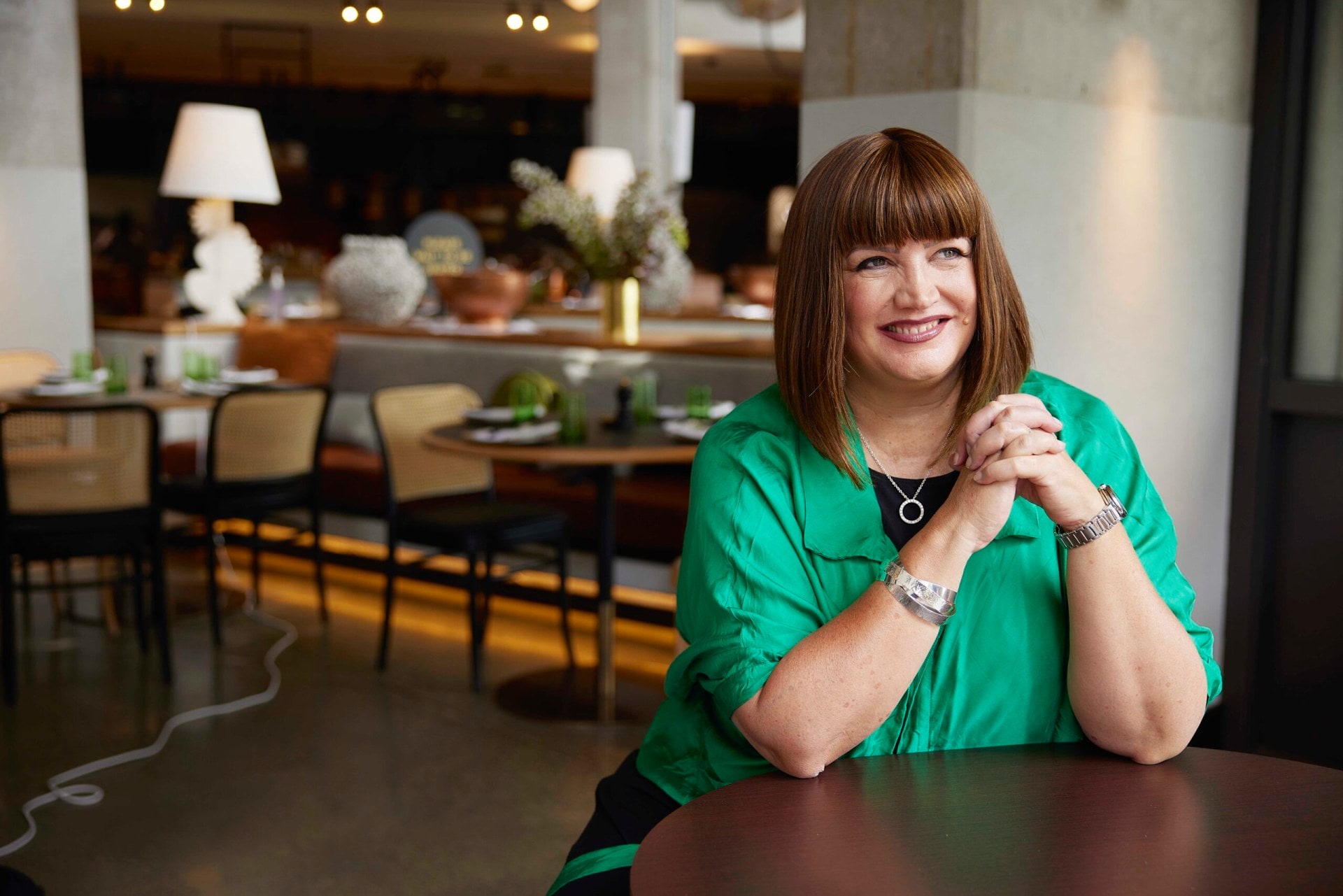
“The ‘first female’ stuff has been very secondary to me,” she insists. “I have never applied for a role on the basis I would be the first woman to do this, I have only applied because I was interested in the role or I thought I could make a difference in the role.”
However, over the years, she’s become fully aware of the impact her appointments have had in paving the way for future generations – and that makes her incredibly happy. In fact, she’s lost count of the number of times she’s been stopped in the street by someone saying “thank you”.
“They’re saying thank you because they now believe they can do it and they now know it’s possible. And that to me is truly amazing. They say, ‘I didn’t know it was possible, but I’ve seen you and now I believe.’ That’s a very powerful outcome or consequence of doing the roles I have done.”
After seven years away from home, Raelene and her partner Greg Jones, also a Kiwi, are thrilled to be back. And when we meet on a sunny Tuesday afternoon before Christmas, there are no signs of the “battle scars” she’s spoken of from her two tumultuous years at the helm of Rugby Australia. In fact, she’s relaxed and chatty, settling in over a glass of sparkling water for our interview that spans her five decades – from growing up in Auckland’s Bucklands Beach as the daughter of two top-level sportspeople, to her illustrious career in the commercial and sporting worlds, and the health battle that’s left her without hair.
But first, we must address her time at the helm of Rugby Australia, which came to an abrupt end with her resignation in April. In the words of her former chairman Paul McLean, who was one of her staunchest supporters, Raelene endured “abhorrent” bullying there, apparently the victim of a vicious smear campaign led by the old – very male – rugby guard who objected to her appointment. The fact she was a woman was one thing, but getting the job over former Wallabies captain Phil Kearns was too much to stomach for some, it seemed.
Choosing her words carefully, Raelene – who also weathered the infamous Israel Folou saga, a broadcasting rights stoush and almost-constant leaks to the press during her time in the role – admits it was a challenging period, noting that “there was a constant third-party overlay that distracted people”.
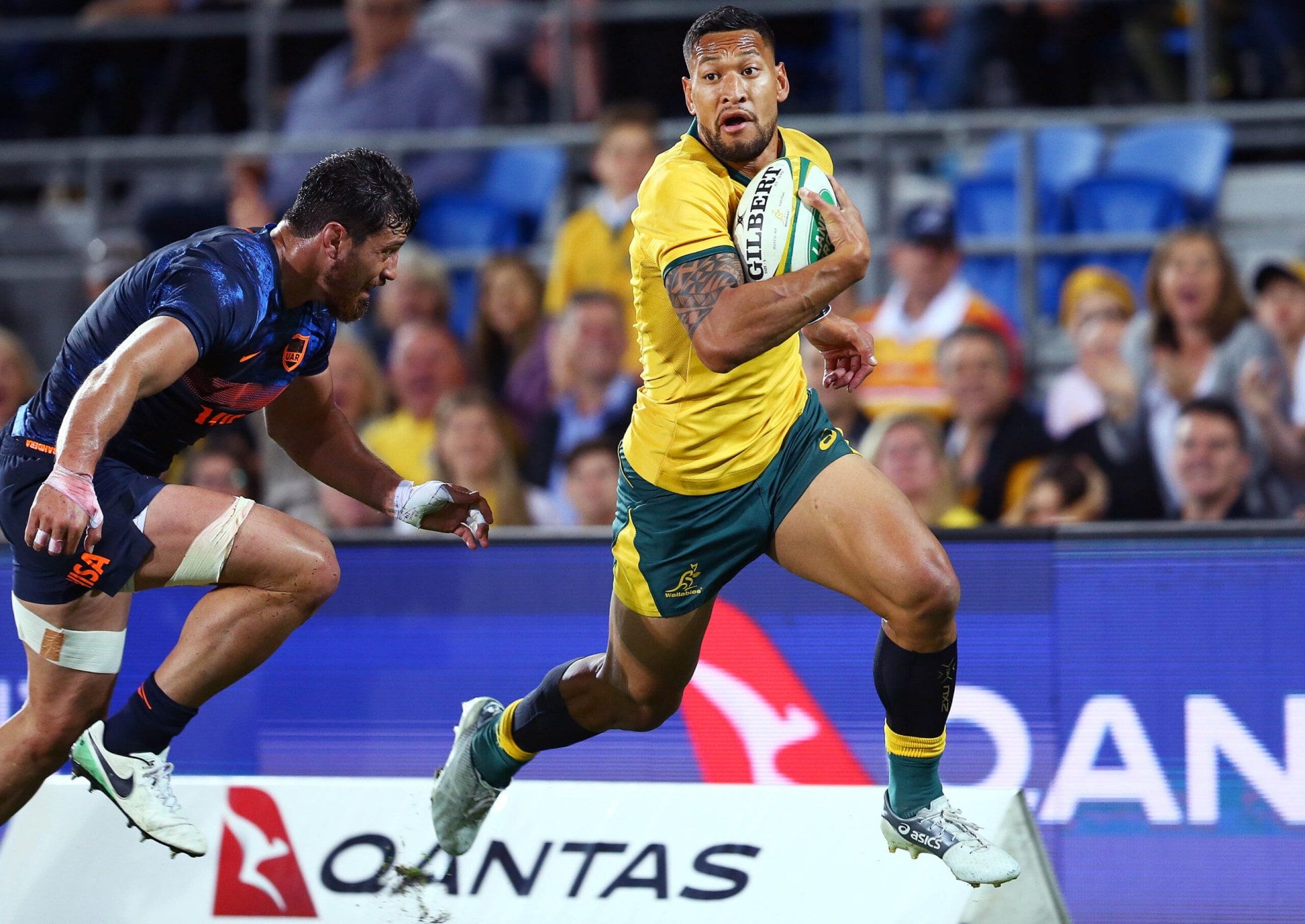
IMAGE VIA: GETTY
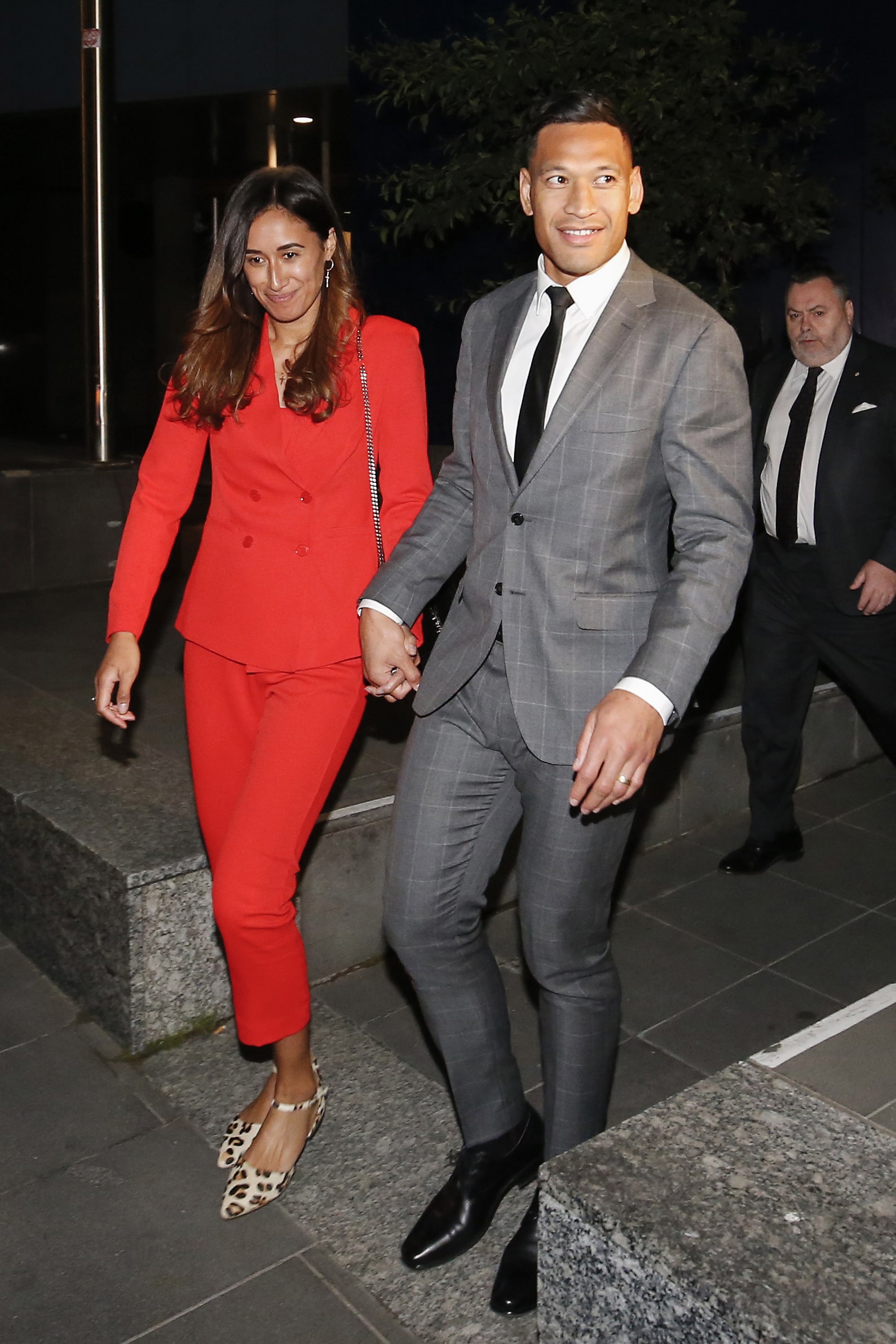
IMAGE VIA: GETTY
From the outside, it looked hellish, but Raelene insists the day-to-day workings of the job were never as bad as they sounded, with most of the drama played out in the pages of newspapers, rather than the Sydney offices where she was based.
“If you didn’t read the newspapers, then the job was amazing,” she says. “Even though I was fine and I was coping, it made it really challenging for my friends and family who were reading all this stuff. It was very frustrating mainly because it caused a distraction from the things we were actually achieving.”
When asked if she faced overt sexism in the role, she thinks carefully. “Not to my face,” she says.
But Raelene still shakes her head in disbelief as she recalls the deeply divisive furore sparked by the sacking of star player Israel Folau over his homophobic comments made on social media. As CEO at the time, she received horrific abuse – and even a death threat – from supporters of the deeply religious fullback. It was, she says, “incredibly challenging”, but also a time of “great learning”.
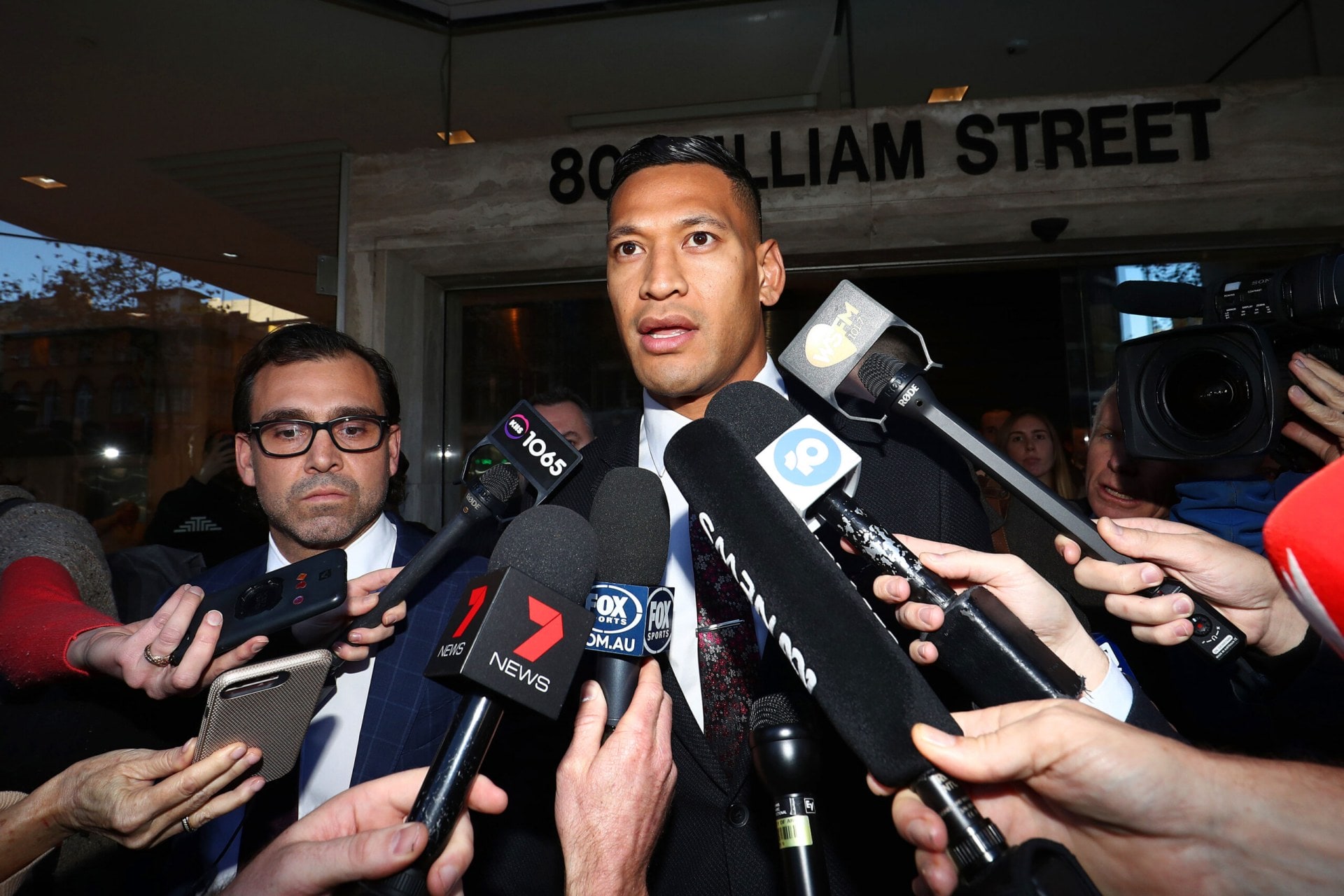
IMAGE VIA: GETTY
“I’ve had so many other CEOs and leaders say to me it’s made them go and look at their HR policies and ask, ‘Would they stand up if we had a staff member use social media in a similar way?’” she says.
While there are some things she wishes she had handled differently, she still stands by the decision to terminate his contract for breach of the organisation’s code of conduct. His comment that “hell awaits” gay people was, she believes, “unacceptable”.
“What I’m still very proud of is that even under the most enormous pressure, it was a values-based decision. It was never a thought process of, ‘Should we treat this differently because of who he was, because he was our highest-paid player, or because it was centred around religion?’” she explains.
As a leader, conversations around diversity of beliefs are essential, she says, and she is pleased others might have learnt from the saga.
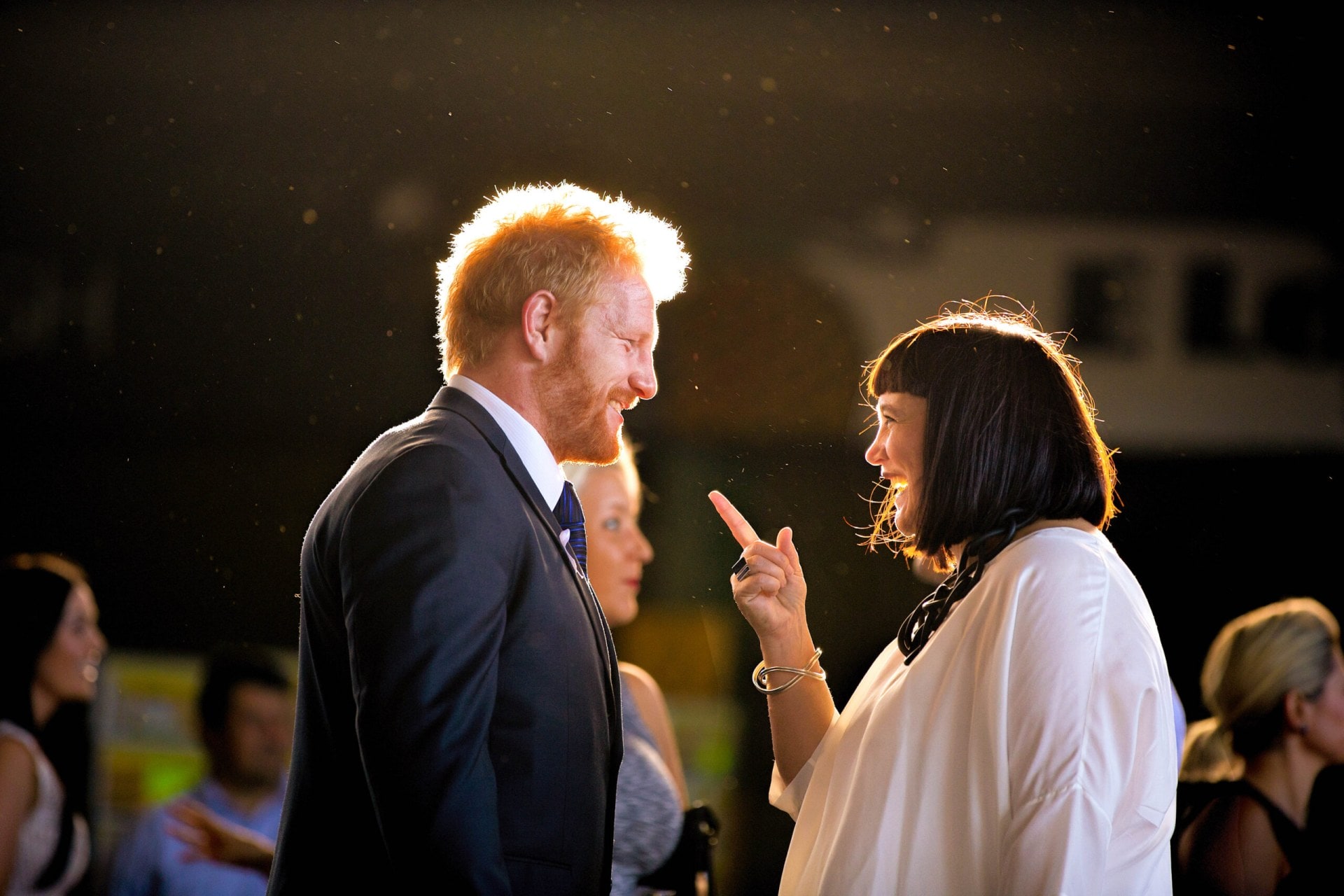
“I’ve said a number of times that diversity and inclusion can be a bit like oil and water – they’re sometimes hard to bring together. The challenge was over how you bring the views of deeply religious people to the table and also make them feel included, because that’s not easy,” she admits.
But when asked if amidst all this she was aware of just how proud most Kiwis were of her for standing up to homophobia, she nods. “I got a very strong sense that people were behind me and that it was the right decision.”
After going through so much in her last role, Raelene might have been forgiven for walking away from the sports industry – and she admits she certainly considered it. But when she was approached about the top job at Sport New Zealand, in which she’ll work closely with Minister for Sport and Recreation Grant Roberston, she knew immediately it was too good an opportunity to turn down.
“The vision is ‘everybody active’ and I love that,” she enthuses. “It’s a really ambitious goal, but to be part of a team that wants to make New Zealanders more healthy and give people great experiences, particularly focusing on rangatahi and tamariki, I think that’s a really special thing. And if we can deliver on that, then that will make New Zealand an even greater place to live.”
Actively involved
To say Raelene is a sports fan is something of an understatement. Her father Bruce, 81, is a former New Zealand rugby league captain, and her mother Marlene, 76, a three-time Commonwealth Games lawn bowls medallist. In her younger years, Raelene played representative-level netball and tennis, before becoming a champion bowls player herself in her mid-thirties. Even now, watching sport takes up a big part of her weekend. “I wouldn’t miss a test match for anything,” she admits. “I love all of it – netball, rugby, league, cricket.”
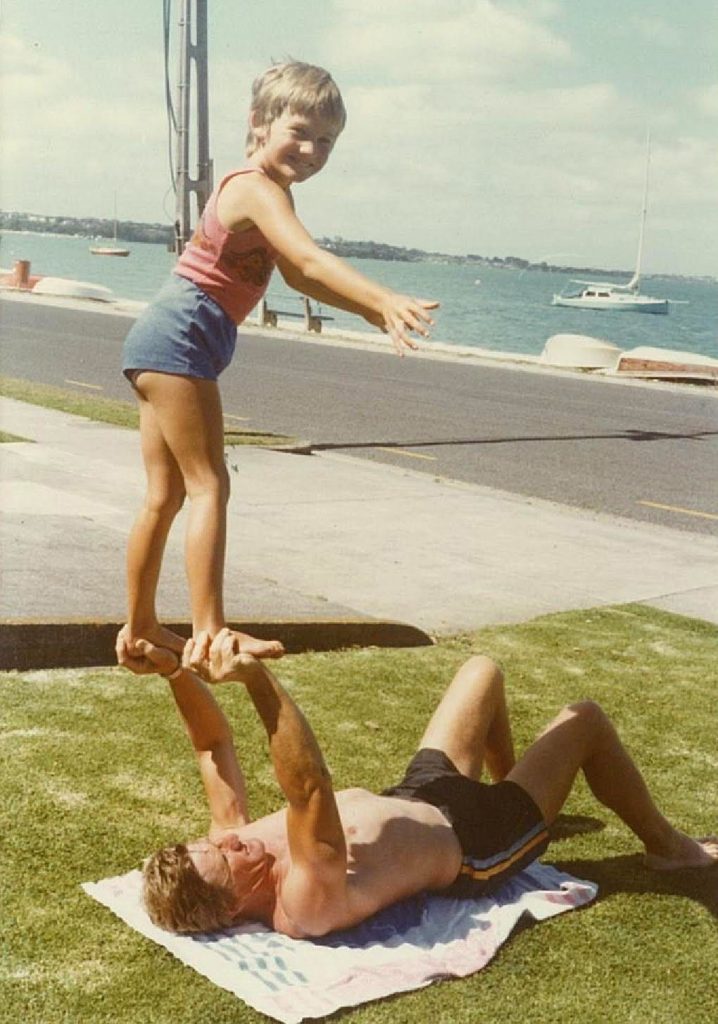
IMAGE: SUPPLIED.
And when she can’t sleep at night, she turns on the TV for a spot of snooker. “It’s very soothing,” she says with a laugh, realising perhaps that not everyone would agree. “It’s the voices and the clonk of the balls on the snooker table.”
Raelene says the reason she loves working in the sports sector is the same reason it can sometimes be frustrating – we all have an opinion on it.
“It’s amazing because everyone is interested in what you do and they have an opinion and give you feedback,” she says. “Obviously, that can be a downside too, because everyone has an opinion!”
The biggest challenges she sees for motivating families to be more active are “the more modern sedentary lifestyle… people on devices, the busyness of life… that sort of thing”.
“We used to ride our bikes to school. It was called transport, not exercise,” she says. “It’s about encouraging families to get outside and play more with their kids. Get a ball or a cricket bat or have a game of touch on the beach. It’s that ability to be outside and active.”
Raelene does her best to practise what she’ll be preaching in this new role, taking regular walks and working out at the gym. But since arriving back in New Zealand, she’s even had a few people try to entice her back to bowls.
“I am really tempted but I’m not sure if I can fit it in,” she says, admitting to regularly working 60-hour weeks. Playing casually isn’t really her style. “It’s all or nothing for me. I am quite competitive.”
It’s an attitude she gets from her parents, who she’s clearly thrilled to be living close to again. Her brother Ryan, his wife Paula and their children Riley, 15, and Finn, 13, are also nearby. When Covid-19 hit at the start of the year, the Sydney home Raelene shared with property developer Greg suddenly felt much further away.
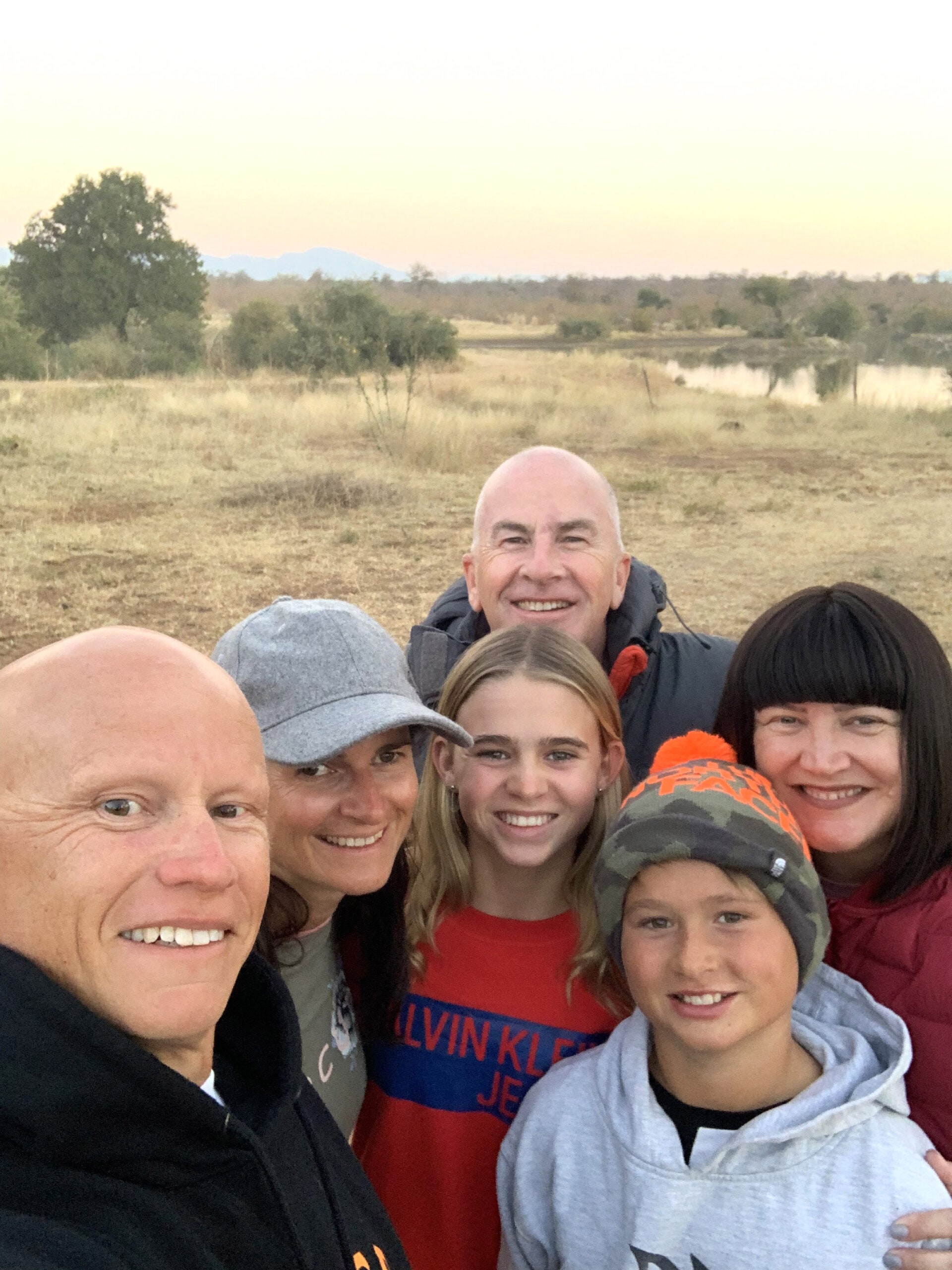
IMAGE: SUPPLIED
“When you were only a three-hour flight away, it was easy, you’d come home for the weekend in a heartbeat and not even think about it. But with Covid and that uncertainty of not being able to get on a plane and travel, if someone got ill or you needed to get home quickly, it was hard.”
Growing up in Bucklands Beach, Auckland, Raelene says her parents were always “amazingly supportive”, encouraging their children to give things a go. But they also helped to instil in Raelene the incredible resilience she has become known for.
“In our household it was ‘no blood, no sympathy’. If you fell over and scraped your knee, it was a case of ‘get up and keep going’. There was heaps of love and encouragement, but certainly no mollycoddling going on.”
Raelene jokes that she went to school (Bucklands Beach Primary and later Macleans College) “to eat lunch and play sport”, but there’s no doubt she was a high achiever, graduating from the University of Auckland with a commerce degree in marketing and production operations management. She worked her way up through the corporate sector, before finding her home in sports administration, becoming CEO of Netball New Zealand in 2007.
Seven years in Australia have given her a good insight into the way our trans-Tasman counterparts operate, and when asked if we’re nicer to each other in Aotearoa, she laughs, diplomatically suggesting Kiwis are a little more “nurturing”.
“In a bigger population you can turn people over more quickly. In Australia there are more marketing directors, heads of IT, wing attacks… it’s much more cut-throat because there is much more choice when it comes to people.
“Here, we have to nurture and grow people because you can’t afford to lose them.”
Raelene describes her own leadership style as “supportive”.
I’m someone who wants to see my team succeed and I’m not afraid to employ people who are smarter than me. Now, with the experience I have, I back myself to bring a team together and lead them and help them be better.
She believes that, to be a good leader, resilience and calmness are vital. It can also be helpful to have a thick skin, she adds.
“I had all sorts of totally horrendous things written about me absolutely everywhere, on forums… in the comment sections of articles, on radio interviews… all sorts of things,” she says, adding that social media is “an incredibly difficult beast”. “I could handle it, but I despair for our young people who don’t have grey hair and life experience.”
A confronting loss
It’s Raelene’s remarkable resilience that has helped her face her auto-immunce disease alopecia areata with bravery and acceptance. The condition, which causes sufferers to lose their hair, first struck when Raelene was in her mid-thirties. Little by little, she noticed her hair was thinning, and she became increasingly reliant on hairpieces and extensions to mask the bald patches. By the time she was 40, and with very little hair left on her head, she turned to wigs. While Raelene is sanguine about it today, an interview from several years ago sheds more light on the enormity of the condition.
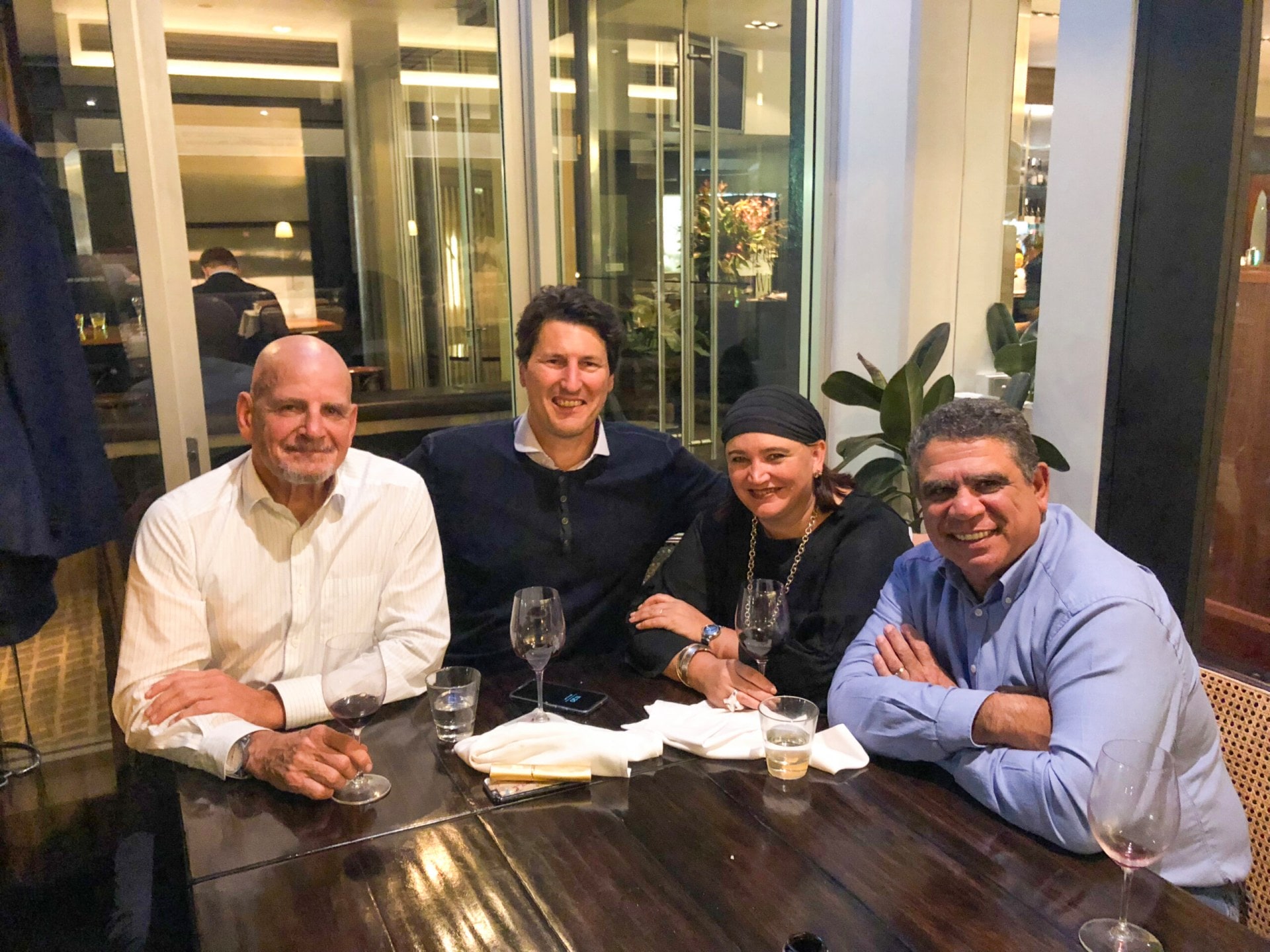
IMAGE: SUPPLIED
“It’s hard, to finish drying your hair and see the bathroom floor covered in it every morning. It’s a daily reminder. There are days when it just sucks.”
Five years on, she’s come to realise she can help others by being open about her struggle. “I decided to be open about it for three reasons,” she explains. “Firstly, I didn’t want people to think I have cancer, and secondly, I didn’t want people to think it was about stress or that I wasn’t coping. But also, and most importantly, there are a lot of young women out there who struggle with it and if I can show people it’s OK, and you can continue on, then that’s a good thing.”
While it took a while to get used to wearing wigs, it’s now a normal part of life for Raelene, whose younger brother Ryan also has the condition. But the double standards women face when it comes to image aren’t lost on her, as she points out how easy it’s been for her brother to embrace his hair loss.
“There he is, out there totally rocking the bald look, but if I walked into the room like that, it would be really confronting,” she says.
While she happily goes wig-free around friends and family, she reaches for her wig – or a bandana – whenever she leaves the house.
Despite huge progress when it comes to sexist attitudes towards women in leadership, Raelene says there is still some way to go. She believes “there are conversations to be had” about how female chief executives and leaders are treated in the media compared to their male counterparts.
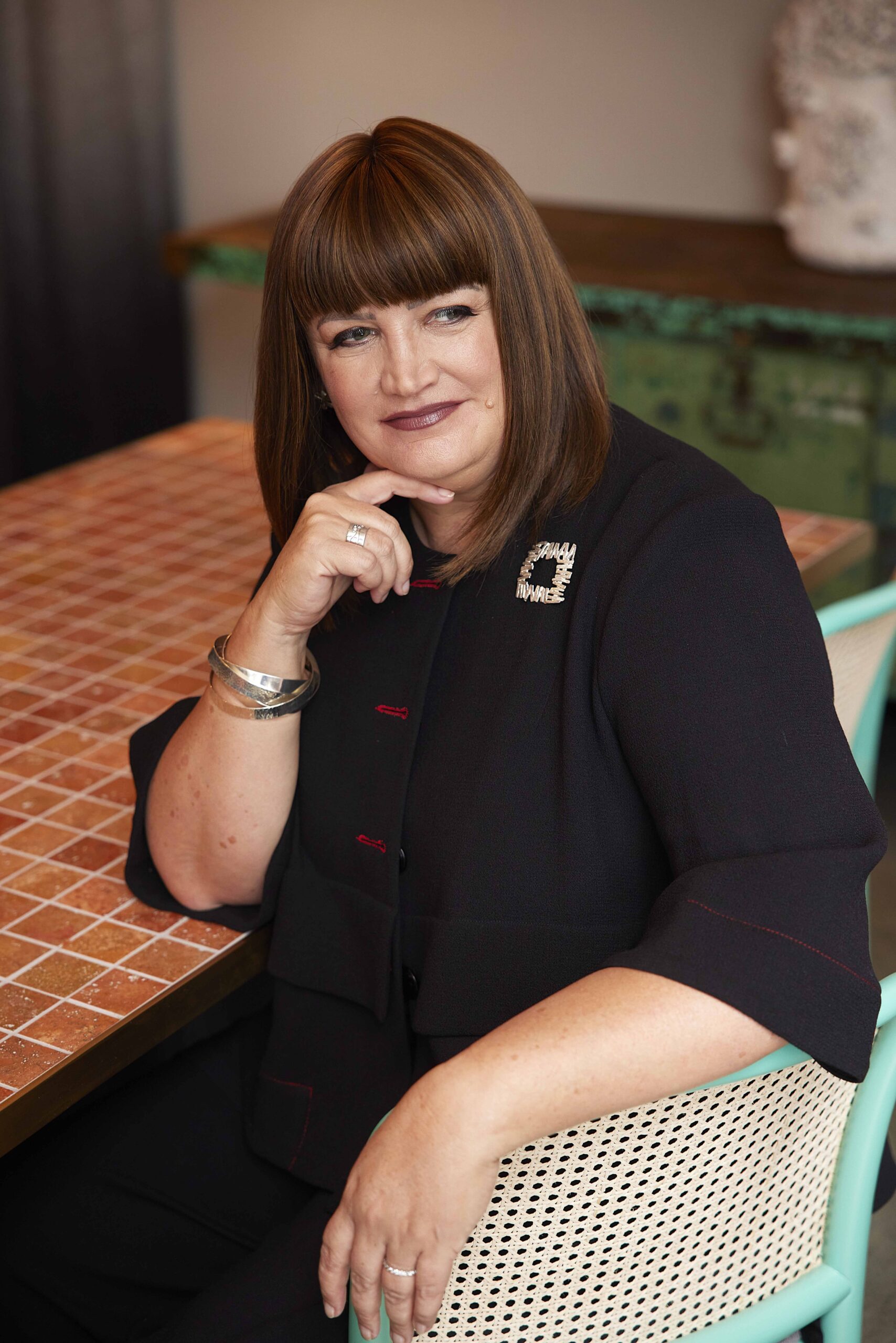
“Things like how photos are used differently, how quotes are used differently, how stats around performance are used,” she says. “We’ve come a long way and it’s better than it was, but we still couldn’t say we’ve got full equality in reviewing performances when you’re talking about gender.”
Her approach to changing the way females in business and sport are perceived is by working hard and doing what she says she’ll do.
“My approach is that if I do a good job then it will change the narrative. That’s the only thing I can control.”
Frustratingly though, Raelene notes that criticism leveled at her is often around her appearance, and language used to describe her is different to that used to talk about men.
“When you stand up and are brave and forward and confident and all of that, then you get called scary or scrappy, and they’re words that men just don’t get,” she says. “As women, we’re getting judged on our appearance every day. If you look on social media, if I’ve done something publicly or there’s an article, 50% of the comments are about what I’m wearing, my weight or my hair.”
Rather than focus on the hopelessness of it all, Raelene has decided to see her femaleness as a competitive advantage.
If you walk into a room of men all in grey or blue suits, there is an opportunity for women to stand out in a boardroom because you can be creative and colourful and it can be a point of difference.
“I do enjoy fashion and shoes and what I wear.”
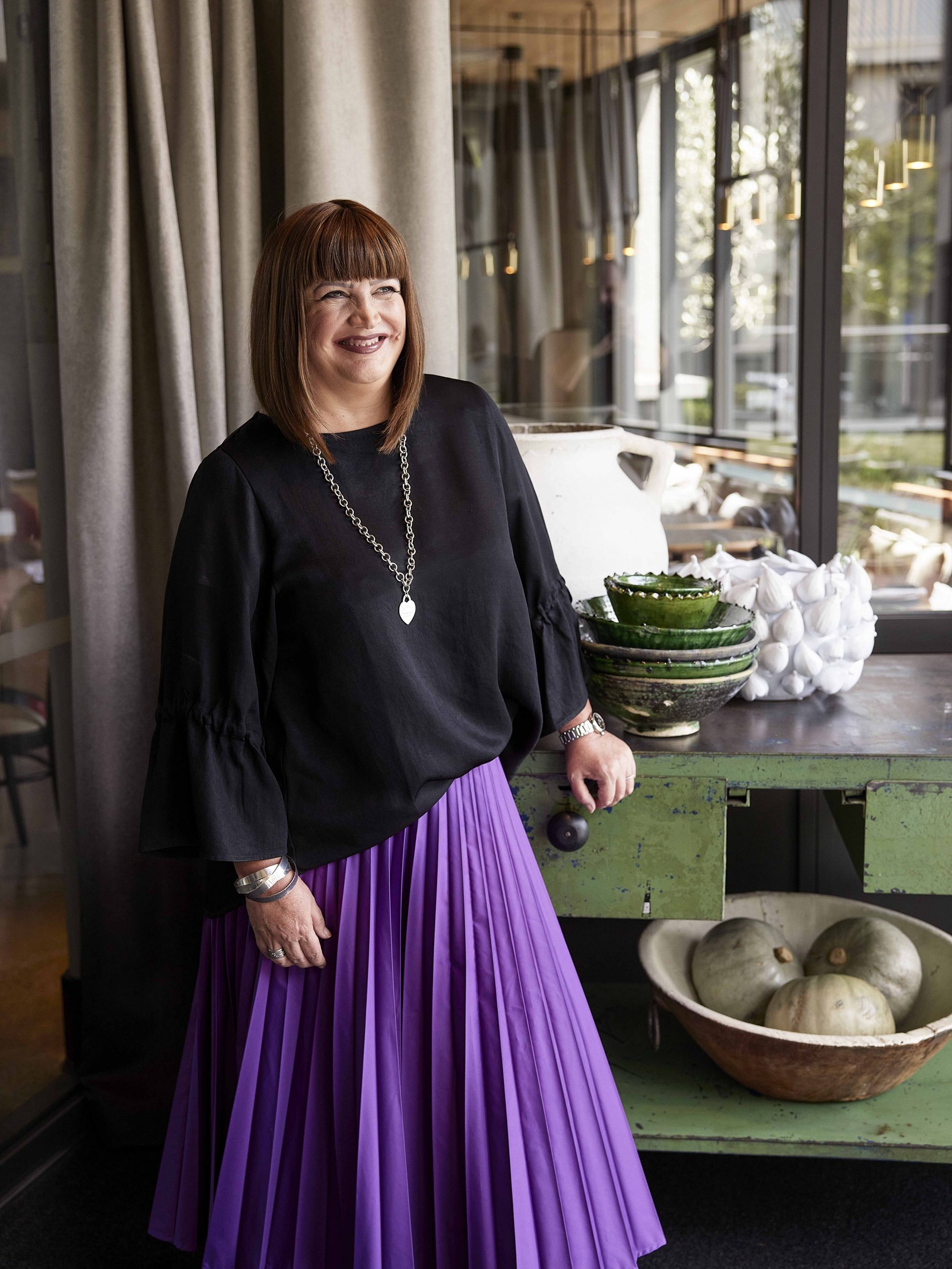
She counts herself lucky that her alopecia didn’t come on until she was in her thirties. “It would’ve been a lot more difficult if I were younger. I was an adult and I was surrounded by really supportive people.”
Her biggest supporter is undoubtedly her partner Greg, 55, who she met at a cocktail party 14 years ago. He will commute to Wellington with her from their Auckland home and often tells her his role is to make her life less stressful.
“It makes it a lot easier to have a job like mine when you have a partner who’s supportive,” she says. “Someone who wants you to be successful and wants to help during the good days and bad days, and he’s that person. He’s fantastic.”
While she started her new job in mid-December, Christmas was set to be spent with friends and family. A keen cook, Raelene had planned the menu well in advance – two eye fillets cooked on the barbie, a stuffed chicken, crispy roast spuds and big bowls of delicious salads. “And plenty of great wine, of course.”
After a well-deserved break in the Coromandel, with plenty of time to think, she’s looking forward to sinking her teeth into the challenge of her new job. Her approach is to spend the first six months “learning and absorbing” and, as always, doing her best to earn the respect of the team around her.
“Just because you’re a chief executive, it doesn’t mean people should respect you from day one,” she says. “It’s about what you do and doing what you say you’re going to do. You have to earn your stripes.”
Photography by: Mike Rooke

